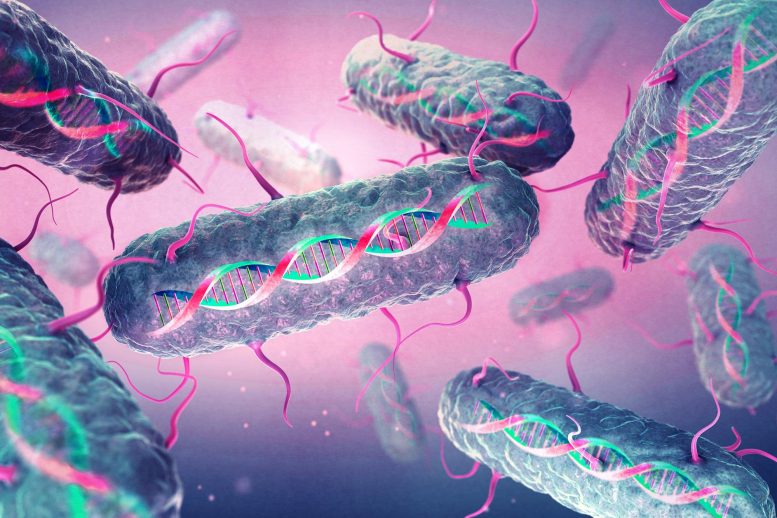
Researchers have come up with a new DNA writing technique, called HiSCRIBE, which helps them more efficiently edit bacterial DNA. By rewriting the DNA, these engineers can program memories into the bacterial cells and store information there that can be later retrieved by sequencing the cell's DNA. It is also hoped that this can be used to edit, activate, or silence select genes in bacteria living in communities outside of a laboratory. HiSCRIBE is the successor to SCRIBE, which had a low writing efficiency. Researchers first worked with it using E. coli to try to store long-term memories by engineering the cells to produce an enzyme which produced a single stranded DNA. This did not work as E. coli has a defense that stops single-stranded DNA from getting into their genome. With HiSCRIBE, they eliminated these defenses and were then able to get the E. coli to incorporate the DNA.
The hopes for this is to be able to one day alter bacteria in humans, such as altering antibiotic resistance off in bacteria.
https://scitechdaily.com/mit-researchers-devised-a-way-to-program-memories-into-bacterial-cells-by-rewriting-their-dna/
https://www.cell.com/cell-systems/fulltext/S2405-4712(21)00251-9?_returnURL=https%3A%2F%2Flinkinghub.elsevier.com%2Fretrieve%2Fpii%2FS2405471221002519%3Fshowall%3Dtrue
No comments:
Post a Comment